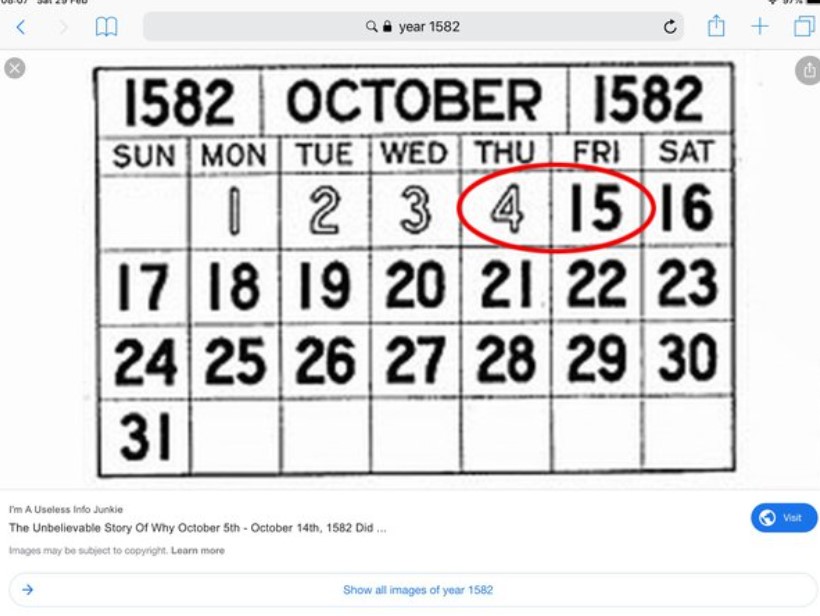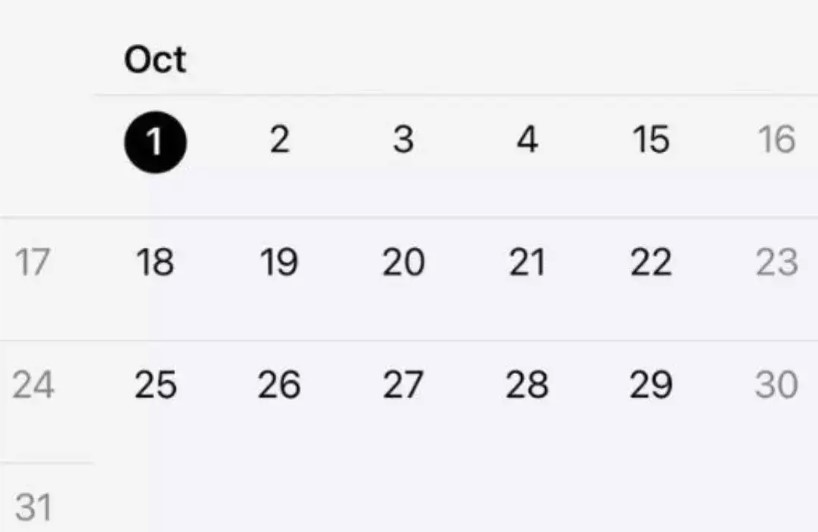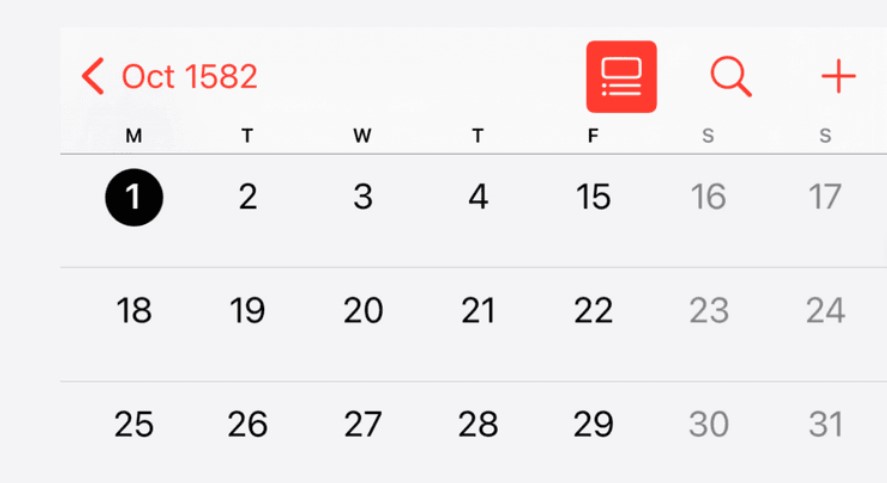The recent discovery that 10 days of October 1582 were missing on people's phones has left many individuals puzzled and intrigued.
It seems that, when scrolling through the calendar on certain devices, the date jumps from October 4 to October 15, completely omitting the days in between.

People are baffled after discovering 10 days of October 1582 literally didn't exist on their phone
Contrary to what some may assume, this discrepancy is not a technological glitch or a prank played by mischievous programmers.
In fact, those 10 missing days did not actually exist in the year 1582.

The reason for this peculiar occurrence lies in a significant historical event known as the Gregorian calendar reform.
Before the Gregorian calendar reform, the Julian calendar, introduced by Julius Caesar in 45 BCE, was widely used. However, over time, an accumulation of discrepancies between the Julian calendar and the solar year became evident.
The Julian calendar's method of accounting for leap years did not accurately align with the Earth's orbit around the sun, resulting in a gradual shift in the calendar year.

To address this issue, Pope Gregory XIII commissioned a reform of the calendar, which led to the establishment of the Gregorian calendar in 1582.
The main objective of this reform was to bring the calendar back in sync with the astronomical year and to ensure the accurate calculation of religious holidays, particularly Easter.
One of the key adjustments made during the transition from the Julian to the Gregorian calendar was the omission of several days to realign the calendar with the solar year.

To achieve this, the dates from October 5 to October 14 were simply eliminated.
This adjustment aimed to rectify the discrepancy that had accumulated over the centuries and bring the calendar in line with the solar year's duration.
The decision to remove these 10 days was not without controversy and faced resistance from some quarters.
However, many Catholic countries, including Italy, Spain, and Portugal, readily adopted the new calendar. Other countries gradually followed suit, albeit at different times.

Interestingly, not every country skipped these days in 1582. Countries adopted the Gregorian calendar at different times.
For example, Greece and Russia switched later, so they didn't have missing days in their calendars in 1582.
The Gregorian calendar reform also introduced the concept of leap years, with specific rules to determine when an additional day, February 29, would be added.

This adjustment aimed to further align the calendar with the Earth's orbit around the sun and maintain long-term accuracy
This revelation has captured the public's curiosity.
A question that has long vexed me finally answered! You have no idea how often I'm trying to schedule things in the 16th century, one user joked
The real question is. Why would I ever scroll back that far in my phone calendar? The second user mocked.
Isn't that when they changed calendars over to the Gregorian calendar? The third user asked.
In 1582, the month of October had 10 fewer days than it usually does because of the implementation of the Gregorian calendar, another explained.






